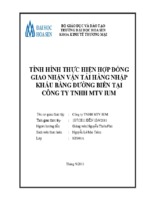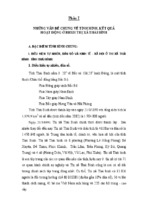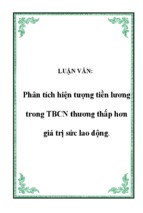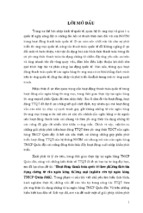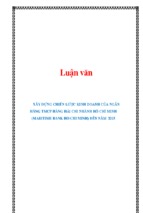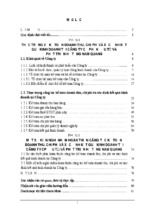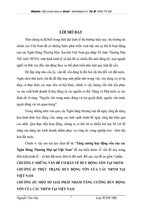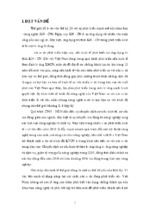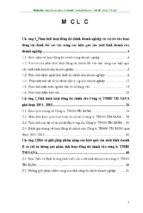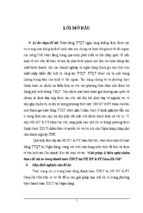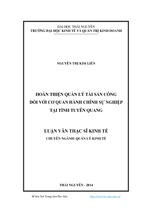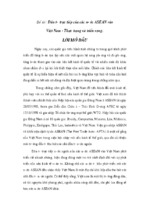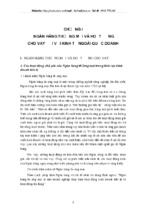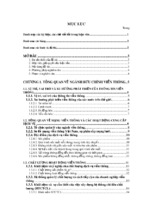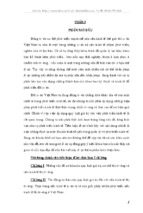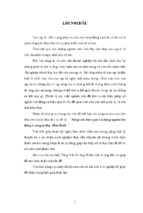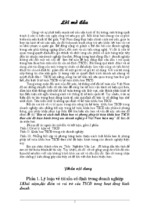Jonathan Swift- the greatest satirist of the 18th century
English Enlightenment
Acknowledgement
Firstly, I would like to express my deep thanks to all
the
teachers
of
English
at
the
foreign
languages
department, especially my supervisor- M.A Tran Ngoc
Tuong, who made so many valuable comments on each
single unit of this thesis.
Secondly, I am most grateful to my parents for their
enthusiastic support.
And finally, I would like to thank for the English Centre
and all my friends who gave me so much encouragement
during the studying.
Without their help, I am sure I cannot complete this
graduation paper.
Lª ThÞ Thanh Tó
0
Líp 40 A2
Jonathan Swift- the greatest satirist of the 18th century
English Enlightenment
Table of content
Acknowledgement
Part I
Introduction
I. The reasons of choosing the thesis
II. The aims of the thesis
III.The objectives of the thesis
IV.The scope of the thesis
V. The methods of the thesis
Part II
Contents
Chapter I: Background
I: England in the 18th century and the English Enlightenment
(1660- 1789)
1. Historical background
1.1.The growth of British Empire
1.2. The Glorious Revolution (1688)
1.3. The formation of the two-party parliament: the
Whigs and the Tories
1.4. The Age of Science and Learning
1.5. Some other features
2. What does Enlightenment mean?
Enlightenment in England (1660-1789)
3. Literature
3.1. Satire - a distinctive form of literature in the
18th century and the development of satire
3.1. a. Introduction
3.1. b. Satire in antiquity
Lª ThÞ Thanh Tó
1
Líp 40 A2
Jonathan Swift- the greatest satirist of the 18th century
English Enlightenment
3.1. c. Medieval satire
3.1. d. Renaissance satire
3.1. e. 18th century satire
3.2:
Some
great
satirists
of
the
English
Enlightenment
II. Jonathan Swift- the greatest satirist of the 18th century
English Enlightenment
1. His life
2. His literary career
Chapter II. Jonathan Swift (1667- 1745) - the greatest satirist of
th
18 century English Enlightenmen
I. Swift’s satirical attitude toward The Church and
Religion
II. Swift’s satirical attitude toward the British and
human beings in general
III. Science and Learning through Swift’s satires
IV. Political life and society of 18th century Britain
through Swift’s satires
Part III. Conclusion
Reference
Lª ThÞ Thanh Tó
2
Líp 40 A2
Jonathan Swift- the greatest satirist of the 18th century
English Enlightenment
I. Part I Introduction
II. The reasons of choosing the thesis
When I was a pupil at secondary school, I was
extremely keen on reading picture books. I liked travelling
to various lands and being drown in the colorful world of
vivid characters. And what drew my attention most was
Gulliver’s adventures to the kingdoms of the small people
and the giants that were very exciting and thrilling. At that
time, I always wondered about Jonathan Swift- the author
of imaginative stories and would like to know more about
him.
Now, being a student, I have a chance to learn English
literature. This enables me to understand further many
famous writers, especially Jonathan Swift- one of the most
typical figures of 18th century English Enlightenment.
Studying about him helps me not only satisfy my curiosity
from the childhood but also have an encyclopedic sight of
18th century Britain.
That’s reason why I choose “Jonathan Swift- the
greatest satirist of 18th century English Enlightenment” as
the theme for the graduation paper.
III. The aims of the thesis
-
To
widen
my
background
knowledge
about
English Enlightenment and English literature in this period.
Lª ThÞ Thanh Tó
3
Líp 40 A2
Jonathan Swift- the greatest satirist of the 18th century
English Enlightenment
-
To understand much more about Jonathan Swift,
his life and his literary career as well as the main themes in
his satires.
IV. The objectives of the thesis
-
Swift’s satirical attitude toward Religion and the
Church.
-
Swift’s satirical attitude toward the British and
human beings in general.
-
Science and Learning through Swift’s satires.
-
Political life and British society through Swift’s
satires.
V. The scope of the thesis
In the thesis, we only concentrate on studying about:
-
The background of the English Enlightenment
that lasted from 1650 to 1789.
-
The life and literary career of Jonathan Swift.
-
Analyzing
some
of
his
typical
satires
and
comparing with the works of the others’ of his time with the
aim to clarifying the main themes.
VI. The methods of the thesis
-
Collective
method:
Collecting
the
materials
concerning the thesis.
-
Analysis, contrastive and synthetic methods.
Lª ThÞ Thanh Tó
4
Líp 40 A2
Jonathan Swift- the greatest satirist of the 18th century
English Enlightenment
Lª ThÞ Thanh Tó
5
Líp 40 A2
Jonathan Swift- the greatest satirist of the 18th century
English Enlightenment
Part II Contents
Chapter I. Background
I. England in the 18th century and the English Enlightenment (16601789)
1. Historical background
The period from the middle of the 17 th century to the
end of the 18th century is often regarded as the historical
background for the appearance of the Enlightenment in
England. Some remarkable events in this period are:
1.1. The growth of British Empire
England began its colonial expansion a century later
than Spain, Portugal and France. In the 16 th century,
whereas Britain was just a small kingdom without overseas
possessions, Spain and Portugal had sent expeditions on
discoveries across the Atlantic and opened the route to
India. They claimed monopoly of trade with new lands.
After defeating Spain’s invincible Armada in 1588, England
was ready to enter the race for overseas trade and
possessions. The British Empire was built partly through
discoveries and settlement.
The first Empire:
The British Empire at first had 2 poles: America in the
West and India in the East. But the stream of immigrants
was directed mainly toward America and was increased by
religious persecution. In 1620, the Pilgrims Fathers landed
on the shores of New England (in the Northeastern part of
Lª ThÞ Thanh Tó
6
Líp 40 A2
Jonathan Swift- the greatest satirist of the 18th century
English Enlightenment
the United States, including the territories of main, New
Hampshire,
Vermont,
Massachusetts,
Rhode,
Island,
Connecticut). Between 1620 and 1640, about 25,000
pilgrims
went
to
live
in
New
England.
And
English
Civilization was steadily spreading.
British regarded the colonies as a source of raw
materials and markets. The search for markets was the
cause for the Seven Years War (1756-1763) through which
England took over the control of India and Canada from
France.
Shortly, after the Seven Years War, the American
colonies began to rebel against the policies of Great Britain.
The Independence War of the American colonies began in
1775 and lasted for 8 years. On July 4, 1776, 13 British
colonies in North America proclaimed their independence
from Great Britain. The most valuable part of the British
Empire was lost, and thus making the end of the First
Empire.
The Second Empire:
In the 18th century, the Industrial Revolution spread in
England
workshop
and
of
turned
the
the
world
country
English
into
the
manufactures
unrivaled
needed
markets for their goods, and food and raw materials for
their factories. British shipping grew enormously. Within 25
years after the loss of American colonies, the second British
Empire was strongly developing in size and in strength. In
the 19th and early 20th centuries, territories in Africa,
Australia, Canada, New Zealand, Asia and the Pacific were
Lª ThÞ Thanh Tó
7
Líp 40 A2
Jonathan Swift- the greatest satirist of the 18th century
English Enlightenment
colonized and became dependent on the British Empire. It
was a common saying that “the sun never set in the British
Empire”.
1.2. The Glorious Revolution (1688)
The Civil War (also called the Bourgeois Revolution
1640-1648) was a terrible experience for the British; it was
a bad example; so the people asked the King not to repeat
any action like that.
Leaving France, Charles II was promised a warm
support by Louise XIV on 2 conditions:
- Not to interfere in the political arena in Europe and
- To yield certain concession to the Roman Catholics in
England.
Everything seemed to be going well until Charles’s
death. In 1685, Charles II died without direct issue and left
the Crown to his brother, James II. As a Stuart King, James
II inherited all the extravagance and licentiousness of the
Stuarts. On the other hand, James was an extremely
fanatical Stuart, who tried to play the all-powerful monarch,
regardless of the compromise between Charles II and
Louise XIV.
Therefore, James II was no more supported by King
Son of France and he had to pay the price. In the 1688, an
arrangement was made among the top layers for James II
to flee to France, leaving the Crown to his daughter Mary
and his son-in-law William of Orange. This event was
known as the “Glorious Revolution”, marking the end of the
Absolute Monarchy and the beginning of the Constitutional
Lª ThÞ Thanh Tó
8
Líp 40 A2
Jonathan Swift- the greatest satirist of the 18th century
English Enlightenment
Monarchy in England. William and Mary then accepted a
new constitutional settlement, the Bill of Rights 1689, which
assured the ascendancy of parliamentary power over
sovereign rule.
1.3. The formation of the 2-party parliament: the Whigs
and the Tories
From 1670 to 1690, in Britain, there were two political
parties- the Whigs and the Tories.
The Whigs (also the predecessor of the Liberal Party):
the name was first used of rebel Covenanters and then of
those who wished to exclude James II from the English
succession (as a Roman Catholics). This party represented
the financial and commercial interests of the town and city
people as well as of the progressive men who didn’t favor
of the old tradition, and were opposed any interference in
political matter by the monarchy.
The
Whigs
always
pressed
for
industrial
and
commercial development, a vigorous foreign policy and
religious toleration. During the French revolution, the Whigs
demanded parliamentary reform in Britain, and from the
passing of the Reform Bill 1832, became known as Liberals.
While, The Tories was considered as the forerunner of
the British Conservative party about 1680-1830. It was the
party of the country landowners, parson and the squire, as
opposed to the Whigs. The trading classes and nonconformists, many of who were supporters of James II,
supported it.
Lª ThÞ Thanh Tó
9
Líp 40 A2
Jonathan Swift- the greatest satirist of the 18th century
English Enlightenment
The original Tories were Irish guerrillas who attacked
the English and the name, was applied to royalists who
opposed the Exclusion Bill. Although largely supporting the
1688 Revolution, the Tories were suspected of Aconite
sympathies and was kept from power 1714-1760, but then
held office almost continuously until 1830.
Though the difference in their policies was very
insignificant, they were often at war against each other,
which became an objection of several famous satirists of
the time. For most of the 18 th century, the Whigs party was
supreme, especially after Sir Robert Walpole consolidated
its power. During his long rule as Prime Minister from 17211724 many of the greatest writers feared Walpole’s power
sided with the Tory minority against him that was brilliantly
satirized by A. Pope, J.Swift, John Gay, S. Johnson and
H.Fielding… So, in short, the color of these two parties was
different, but both of them had no aim, but using all the
means to usurp the Cabinet and to control and threaten the
state machine.
1.4. The Age of Science and Learning
The 18th century in England was also distinguished in
science and learning. At this time, London was a city of
several great men: Isaac Newton, John Locke, David
Hume…
whose
discoveries
were
considered
as
basic
foundation for people to understand, to explain and to form
their own opinion about all phenomena of the nature and
the meaning of the universe. These discoveries opened the
way for the Age of Science and Learning.
Lª ThÞ Thanh Tó
10
Líp 40 A2
Jonathan Swift- the greatest satirist of the 18th century
English Enlightenment
Considering the philosophical aspect, in about the end
of the 17th century and the beginning of the 18 th century,
the trait against the feudalism took place under various
forms, but it was said to be the struggle between Idealism
and Materialism.
According to John Locke (1632-1704), a philosopher the first to launch the 18th century Enlightenment: “Man
and his use of reason are evidence enough for the
existence of God”. Locke’s epistemology and his crucial
rejection of innate ideas in favor of the notion of knowledge
based
on
external
sensation
and
internal
“reflection”
helped, it has been argued, to determine the tendency of
many 18th century writers to describe the observable world
rather than offer a subjective interpretation of the workings
of the psyche. Locke, as the appreciation of Engel’s:
“considering the religious aspect as well as the political one
to be the own child of the compromise of 1688”. Anyway,
Locke also marked an important advance in history for
ideology; had a great influence on later philosophers;
especially, many progressive philosophers of the 18 th
century in France where Absolute Monarchy and Christianity
were ruling with their cruelty and arbitrary over every
aspect of life.
Religious controversies about Deism became extremely
ebullient during many years at the beginning of 18 th
century. Following Locke’s ideology, the others tried to
apply the reason to define a kind of natural religion; to
propagandize some aspects of Materialism, and to be
Lª ThÞ Thanh Tó
11
Líp 40 A2
Jonathan Swift- the greatest satirist of the 18th century
English Enlightenment
against the Church. Here, we can mention Tolland (16701722), Collins (1676-1792), Wools ton (1669-1731)… From
the 17th century, in Britain, the conflict between Christianity
and Puritanism turned severe. Puritanism appeared in 1564
in Britain; it was influenced by religious reform of Caving
and especially, this religious sect had an extremely strict
point of view about virtue. This is actually another form of
the struggle of the capitalist class against feudalism, as the
Stuart, at this time, was considering Christianity to be its
state religion.
Philosophical ideologies were always attached with
political problems. Bolingbrook (1678-1754), about religion,
supported
Deism
and
about
politics,
expressed
his
sympathy to an equal monarchy. Shaftsbury (1671-1713)
brought out his own point of view on the harmony of the
world, on good human nature and his moral notion as well
as beauty existing inside each other.
Along with philosophers, scientists also contributed
their part to pave the way for the Age of Science and
Learning. Among them, Isaac Newton (1642-1727) is a
typical figure. Newton, “The miracle of the present Age” as
Joseph Addison called him “had given his eighteenthcentury heirs a carefully reasoned theoretical framework on
which a whole range of additional theories could be hung.”
His
“Principia”
(1687)
and
his
“Optics”
(1704)
suggested that there were indeed intelligible laws in nature
which could be demonstrated by physics and mathematics,
and, moreover, that the universe exhibited a magnificent
Lª ThÞ Thanh Tó
12
Líp 40 A2
Jonathan Swift- the greatest satirist of the 18th century
English Enlightenment
symmetry and a mechanical certainty. By interpretation,
Newton’s heavens declared that there was order, law and
indeed design in creation.
Largely thanks to the propagandist work of the Royal
Society
in
London
and
European-wide
advances
in
astronomy, mathematics, mechanics, physics and optics,
natural
philosophy
had
shed
the
taint
of
forbidden
knowledge. Religious mystery could be enhanced; scientific
thought begun by Copernicus 150 years earlier was to be
fulfilled as popular enlightenment.
His “Primped” marked a milestone in the history of
Science by announcing his theory of the law of universal
gravitation. And the Optics established him as the founder
of the modern science of optics, to this book was attacked
Method of Fluxion, the Newton calculus which caused a
better dispute with Alibis over priority of invention.
1.5. Some other features
At this time, the upper class thought that if the poor
had chance to learn much, they might change their position
in the society. So universal education was so far for future
and was opposed by the upper classes on the ground that it
could elevate the humble people in the same position.
The 18th century British society, so, appeared seven
groups of people:
- The great who lived luxuriously.
- The rich who lived so plentifully.
- The middle sort who lived well.
- The working trades who labored hard but felt no want.
Lª ThÞ Thanh Tó
13
Líp 40 A2
Jonathan Swift- the greatest satirist of the 18th century
English Enlightenment
- The countrymen who lived and worked indifferently.
- The poor who lived and worked hard.
- The miserable people who suffered a lot of difficulties.
2. What does Enlightenment mean?
The 18th century marked an important turning point in
the history of development of European countries. It exists
in the history with a meaningful name: “The Enlightenment
Century”.
Feudalism, which existed in Europe for a long time,
until 18th century, didn’t play a progressive role but became
a hindrance for the development of the society. The
capitalist class, from its birth fought strongly against feudal
system and this struggle was extremely severe and drawnout. The former considered it its duty to abolish an out-ofdate system. And this duty was basically solved in 18 th
century.
During many centuries the feudal system together with
the obscurantism of the Church restrained people in a
completely vicious circle. Philosophers and progressive
writers of 18th century from many countries over Europe
launched a powerful movement which praised reason and
used the light of Reason to drive darkness away, to
enlighten the truth, to free ideology for everybody, to
broaden their knowledge and to enable them to contact
with culture, science and art. The light of Reason shone
every field: politics, religion, economy, philosophy, law and
education
feudalism.
and
turned
Engel’s
Lª ThÞ Thanh Tó
into
didn’t
a
sharp
forget
14
to
weapon
against
emphasize
that
Líp 40 A2
Jonathan Swift- the greatest satirist of the 18th century
English Enlightenment
characteristic while appreciating French writers of 18 th
century to be: "great men enlighten people’s mind with the
aim to preparing for a revolution which is due to burst”.
The term “Enlightenment” pointed out the progressive
role of the capitalist class in comparison with the feudal
class in the Age of the Bourgeois Revolution by giving the
contrast between the light and darkness. Or, broadly
speaking, “Enlightenment contrasts with the darkness of
irrationality and superstition dominating the Middle Ages”.
It is said to be the emergence of man from his selfcomposed infancy characterized by lack of not reason itself
but of the courage to use it, to become a subject with
independent reasoning… Thus the watch-word of the
Enlightenment is: “Sapere aude!” (Have courage to use
your own reasoning)
In Literature, “Enlightenment” is the period lasting
from 1700 to 1798. Through their works, the leading
doctrines of the Enlightenment center round the following
categories of thought:
1: Reason is a principal tool for all humans to think and
to act correctly.
2: Man is good by Nature. And man’s good nature can
be brought to perfection through education.
3: All men and women are born equal in respect of
their rationality and should thus be given the right to
equality before the law.
Lª ThÞ Thanh Tó
15
Líp 40 A2
Jonathan Swift- the greatest satirist of the 18th century
English Enlightenment
4: Beliefs, religions, customs are to be questioned and
accepted on the basic of reason only, not on the basic of
authority, sacred texts or tradition.
5: Supernatural and miraculous elements are discarded
as the whole universe is conceived as a rational system
accessible to human reason.
6: Man to man is brother-to-brother, regardless of
nationality or country of residence.
Enlightenment thinkers believed in social progress and
in the liberating possibilities of rational and scientific
knowledge. They were often critical of existing society and
were hostile to religion, which they saw as keeping the
human
mind
chained
down
by
superstition.
The
enlightener-writers concentrated on humanistic studies of
Man, his nature and the origin of his good and evil doings.
To them, vie was due to ignorance which could be done
away with by force of reason. As a result, they thought it
their duty to enlighten the people and insisted upon a
systematic education for all through their works.
In short, the Enlightenment movement was in fact a
revolutionary movement. As it spread the idea of equality
and brotherhood, it had nothing to share with the surviving
feudal ideology, a system of thought based on hierarchical
and patriarchal relation among men. And the American and
French
Revolutions
were
justified
by
Enlightenment
principles of human natural rights.
Enlightenment in England (1660-1789)
Lª ThÞ Thanh Tó
16
Líp 40 A2
Jonathan Swift- the greatest satirist of the 18th century
English Enlightenment
Though England was known as the cradle of the
Enlightenment, the English Enlightenment was not so
revolutionary as the French one. The French Enlighteners
were themselves extreme revolutionists. They recognize no
external authority of any kind. “Reason became the sole
measure
of
everything.
Every
form
of
society
and
government then existing, every old traditional notion was
flung into the lumber-room as irrational… Superstition,
injustice, privilege, oppression were to be superseded by
Eternal Truth, Eternal Rights, Equality based on nature and
the inalienable Rights of Man” (Engel’s). By the same time,
in England, the English Bourgeois Revolution had been over
for a long time. The political background for the English
Enlightenment was the Glorious Revolution, a revolution
that is characterized by compromises between the old
aristocracy and the emerging bourgeoisie.
Being a period of political intrigue and increasing
intellectual tendencies, the Age of Enlightenment was
favorable to the development of prose rather than of
poetry.
The Literature of this time was illustrated by such
masters of prose as Swift, the prince of English satirist;
Defoe, the father of the English novel; Addison and Steele,
the
creators
of
English
essay-writing
and
Pope,
the
acknowledged ruler of the literary world of his day.
The Enlightenment in England was not uniform. There
were two tendencies within the movement: the moderate
and the radical. Enlighteners-writers of the more moderate
Lª ThÞ Thanh Tó
17
Líp 40 A2
Jonathan Swift- the greatest satirist of the 18th century
English Enlightenment
wing, who wanted to make the world better by teaching,
include: Alexander Pope (1688-1744); Daniel Defoe (16611731); Samuel Richardson (1689-1761); Joseph Addison
and Richard Steele.
Among the Enlighteners of the more radical wing who
openly protested against vicious social orders in their social
satires, were Jonathan Swift (1677-1745), Henry Fielding
(1704-1754), Robert Burn (1759-1796) and others.
Early Enlightenment (1660-1750)
This period witnessed the birth and growth of Neoclassicism in poetry and the transition from the Heroic style
(of Shakespeare) to the prosaic style of essayists. This
period also witnessed the maturity in the development of
the Enlighteners’ novel writing both in theory and in
practice. In theory, the aim of novel writing was set up as
“to imitate life; to show the variety of human nature; to
expose the roots of human vices; and to indicate the ways
for correcting social wrongs”(Fielding). In practice, the
novels by Daniel Defoe, Samuel Richardson and Henry
Fielding provide their readers with vivid pictures of the
contemporary
society
described
with
a
down-to-earth
realism.
Through their works, especially Pope’s, all the essential
features of English Neo-classicism are fully expressed. They
are:
- Control of emotion
- Worship of reason
Lª ThÞ Thanh Tó
18
Líp 40 A2
Jonathan Swift- the greatest satirist of the 18th century
English Enlightenment
- Adherence to the styles and aesthetic principles of
ancient Greek and Roman classical art.
In the Early Enlightenment also appeared two typical
authors of the two groups: Daniel Defoe and Jonathan
Swift,
who
were
representatives
of
the
Enlighteners’
realism.
Realism, a literary term, which comes from the Latin
word ‘realist’ meaning material; is the method of truthful
presentation of objective reality. Realism, as a method of
literary creation, also implies, alongside, realistic details,
the description of typical characters acting under typical
circumstances.
Defoe’s strength as a novelist lies in his realism. Every
novel reader likes the air of verisimilitude (this means:
everything appears under its nature). The novel reader
asks to be “taken in the described society of the novel; and
he likes it to be done well".
Defoe manages it in style, he always identifies himself
with the subject; asking himself what he should have done
in his character’s place. In other words, Defoe is a master
of the art of taking and keeping the point of view of his
hero.
His
novels
are
often
based
on
what
he
had
experienced or on real event, for example, "Journal of the
Plague Year” (1722) or “Robinson Crusoe” (1719). The
impression of the truthfulness is considerably furthered by
Depoe’s mastery of realist details.
While being a typical Enlightener of the more radical
wing, Swift is best known for his satires. He described the
Lª ThÞ Thanh Tó
19
Líp 40 A2
- Xem thêm -


